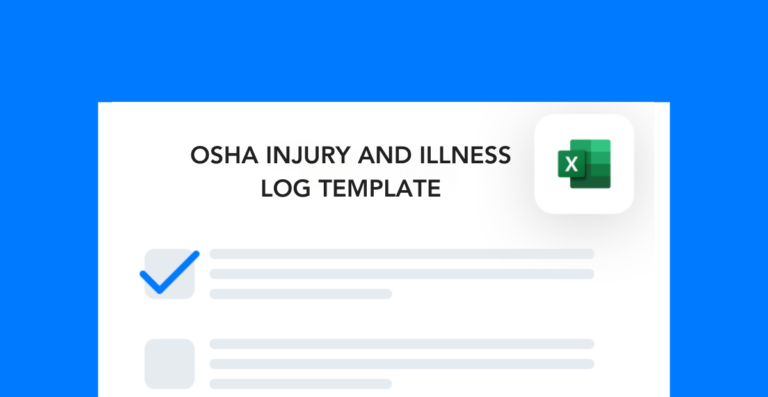Nearly every place of employment has a policy which requires employees to report any injury immediately. There’s always at least one employee who says they didn’t realize they were even injured until they got home that night, but it is crucial for everyone to always remember to report injuries immediately.
Now what?
Is it really necessary to report injuries immediately, and if so, what does “immediately” really mean?
When I first got into the EHS profession, I really didn’t understand the need to have employees report every single injury “immediately” to their supervisor or the EHS department. But after spending quite some time in this career path, I’ve found that there are many reasons to report anything fairly immediately, as it ensures injuries are swiftly reported without delay.
Let’s discuss the various reasons you need (not want) your employees to report an injury right away. It’s essential that they know why reporting injuries promptly is vital to make sure they handle incidents appropriately.
Free template!
This OSHA injury Excel log includes the 300, 300A, and 301 forms you’ll need to submit. Remember, it’s necessary to report injuries immediately to ensure proper documentation.
Taking care of workers by reporting injuries immediately
If an employee waits to report an injury, they may not get worker’s compensation approval to take care of it properly. I’ve personally handled injuries where the reporting delay resulted in a denied worker’s comp application. And that’s because at the time of the report, there was no indication that the injury took place at work (versus on personal time).
As an EHS professional, you want to ensure that workers receive the best possible care for injuries. Furthermore, negative injury experiences can lower morale and impact how workers view safety at the company. Therefore, it is important that all injuries be reported immediately to facilitate the best care.
Investigating injuries quickly
If there’s anything that I learned working in law enforcement, it’s that time is of the essence when it comes to investigating any situation. If you prolong an investigation, you risk losing key details.
Encouraging your workers to promptly report injuries gives you the best possible chance to figure out what happened. And this information is essential for implementing changes that prevent the same situation from happening again—prompt reporting aids in these investigations.
Classifying injuries and managing cases
If your employee waits to report an injury goes to their own doctor, you’ll have no way to help manage the injury case at the physician’s office. Most companies have their own occupational physician(s) where they send injured workers. This system functions best when one reports all injuries immediately.
That’s because a company physician is less likely to administer unnecessary treatments/tests. They also already know the company and may know some of the processes and tasks that workers regularly perform.
This means that workers will have a more personal experience than if they were to go to a clinic or the emergency room. Oftentimes, the clinic will just give your employee medication and tell them to follow-up with a primary physician.
Overall, this process doesn’t provide the best care for employees and often results in unnecessary injury reports. Everyone loses.
When workers wait to get treated, however, a small injury can escalate quickly. A good example of this is lacerations and cuts. They start minor, but unless you clean them, they can grow into infections. Therefore, reporting these injuries immediately is critical to avoid complications.
Eye injuries are another example of this. I’ve gotten many objects out of eyes using first aid measures—but my success relied on employees reporting those issues without delay. Encouraging workers to make reports allows you to assess the situation before it has the chance to escalate.
Lowering incident costs by reporting injuries immediately
When companies spend unnecessary money on injuries, it impacts everyone. A delay in reporting can cause medical expenses to increase significantly.
I once had an employee wait years to tell me about possible carpal tunnel syndrome until they couldn’t sleep at night due to the burning sensation. Here’s the fallout of that decision:
- The worker had to have surgery on both wrists.
- Insurance premiums for all workers increased.
- The worker was on disability and received worker’s compensation.
- We had to train another worker to fill in during the disability period.
- The experience modifier rate (EMR) increased through insurance.
In the instances where employees came to me early with carpal tunnel syndrome, we were able to correct the issues using first aid measures. Even just a few hours or days can make a big difference, depending on the type of injury. This highlights the importance of encouraging immediate injury reports to prevent complications.
Testing for drugs and alcohol
If your company tests for post-incident drug and alcohol, the testing must be consistent and apply to everyone involved. You need to perform tests in a reasonable amount of time if you are going to do this at.
Employees may intentionally avoid reporting incidents because they know they won’t pass the substance testing. If you allow this to occur, your company will be liable in more ways than one.
Avoid these issues by training your employees when and how to report injuries and other safety issues. It’s important that you specify what your definition of “immediately” is, so that workers know exactly what you expect. Encourage them to report injuries as soon as they feel them, which is necessary to ensure all injuries are immediately documented. Include the stipulation that if workers feel an injury upon leaving the site, they should contact their manager or the EHS team without delay.

Jason Hathcoat, CSP
Jason is a seasoned EHS professional with more than 20 years of experience working in health and safety. He currently serves as a Senior EHS Leader at Trane Technologies.




